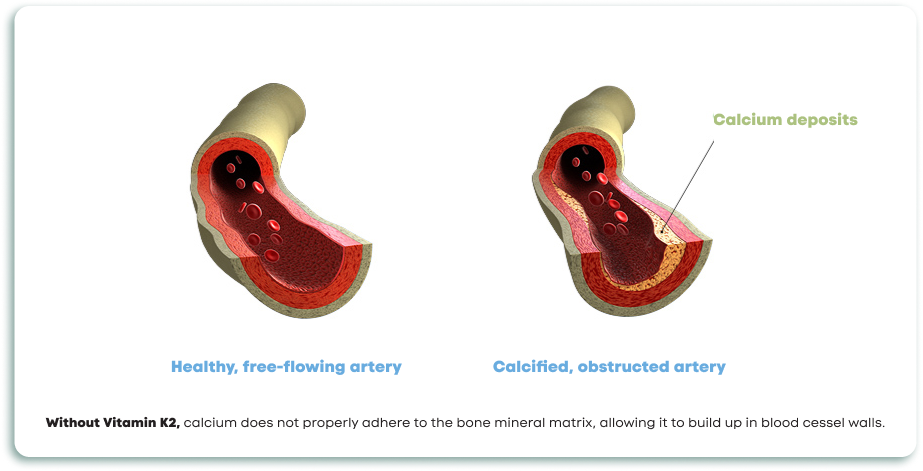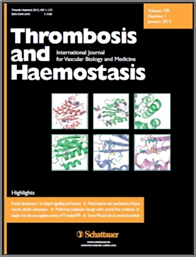Cardiovascular Health


We value your privacy
We access information on a device, such as cookies and process personal data, such as unique identifiers and standard information sent by a device for personalized ads and content, ad and content measurement, and audience insights, as well as to develop and improve products. With your permission we and our partners may use precise geolocation data and identification through device scanning. You may click to consent to our and our partners’ processing as described above. Alternatively you may click to refuse to consent or access more detailed information and change your preferences before consenting. Please note that some processing of your personal data may not require your consent, but you have a right to object to such processing. Your preferences will apply to this website only. You can change your preferences at any time by returning to this site or visit our privacy policy.
MenaQ7 study with children
45 mcg per day of vitamin K2 was shown to support the needs of healthy bones in children
Growing Strong Bones
Childhood is the most essential period for developing and building healthy bone mass.
However, research shows children have 8 to 10 times higher levels of inactive osteocalcin, which means they are not optimally building the bone mass they require during this period.[3]
In turn, today we see an increase in low-energy fractures in children. Thankfully there is a way to mitigate this situation.
Studies show that children who have optimal levels of Vitamins K2 and D3 have fewer bone fractures than children with lower status of these two vitamins. [4,5]
MenaQ7® is the only Vitamin K2 on the market proven to benefit bone health in children.
[3] Theuwissen E et al. Food & Function. 2013;5(2):229-34
[4] Popko J et al. Nutrients. 2018 Jun 6;10(6):734.
[5] Karpiński M et al. J Am Coll Nutr. 2017 Jan;36(1):64-71
MenaQ7® study show
180 mcg per day of vitamin K2 maintain bone health in postmenopausal women
Well-Being in Times of Change
It is well recognized that women approaching and going through menopause are prone to develop weaker bones.
During this period, hormonal changes lower oestrogen levels, leading to bone loss and increased fracture risk.
Compromised bone health is estimated to affect 200 million women worldwide. Supporting bone health in women during this period of life is growing in importance, particularly as an ageing population seeks to maintain their quality of life.
The combination of Vitamins K2 and D3 is shown to have a more beneficial effect on this demographic’s bone strength than either vitamin taken alone.[5]
MenaQ7® is the only clinically proven K2 to deliver on the promise of maintaining bone health in postmenopausal women.[2]
[5] Ushiroyama T et al. Maturitas. 202 Mar 25;41(3):211-21.
[2] Knapen MHJ et al. Osteoporos Int. 2013 Sep;24(9):2499-507.
Supporting Mothers for Healthy Babies
Pregnancy is a time of extraordinary change and the WHO estimates 20-30% of pregnant women suffer from some kind of vitamin deficiency. Post-natal supplements are important for many women during this period of their lives to ensure not only their health, but their babies as well.
In particular, pregnant women are advised to increase their calcium levels to support the growing babies’ bone and teeth – and to maintain the mothers own bone mass, which is depleted during pregnancy and nursing.
Research shows that women's bone metabolic status significantly changes over the period between pregnancy and during nursing [6], and as much as 50% of newborns are K deficient. Incorporating Vitamins K2 with D3 in post-natal supplements would benefit both mother and child through their combined optimization of calcium.
[6] Miyamoto T et al. Sci Rep. 2019 May 13;9(1):6787.
MenaQ7® study show
180 mcg per day is beneficial for bone and cardiovascular health.
Do What You Love Longer!
Calcification is believed to be an inevitable and unfortunate result of aging, but studies show that arterial calcification is, in fact, an actively regulated process where Vitamins K2 and D3 play a critical role.
In 2020 the ageing population (people over the age of 65) grew to approximately 727 million. Supporting bone and heart health is vitalto ensure quality of life as we age.
A 2013 study [8] evaluating the cardiovascular effect of Vitamin K2 (MenaQ7®) plus Vitamin D or Vitamin D alone showed more beneficial results when the two nutrients were combined than when D was taken alone.
MenaQ7® is the only clinically Vitamin K2 as MK-7 proven to reduce arterial stiffness in adult populations.[9]
[8] Kurnatowska I et al. Pol Arch Med Wewn. 2015;125(9):631-40.
[9] Knapen MHJ et al. Thromb and Haemost. 2015 May;113(5):1135-44.
Active Lifestylers
The bone and joint market is still expected to be driven by aging populations, but trends like Healthy Aging and Fitter for Longer open the market for younger demographics. Since 2000, views have drastically evolved about the importance of staying active and the role bone/joint health plays in one’s ability to do so.
Bone fractures are an obvious hindrance to staying active. In fact, every 3rd woman and every 5th man over the age of 50 will experience osteoporotic fractures. It is also worth noting that young female athletes have higher fracture risks than male counterparts.
Knowing the intricate balance between Vitamins D3 and K2, and its combined benefits for bone and heart health, a product that aims to support active lifestylers should incorporate both.


